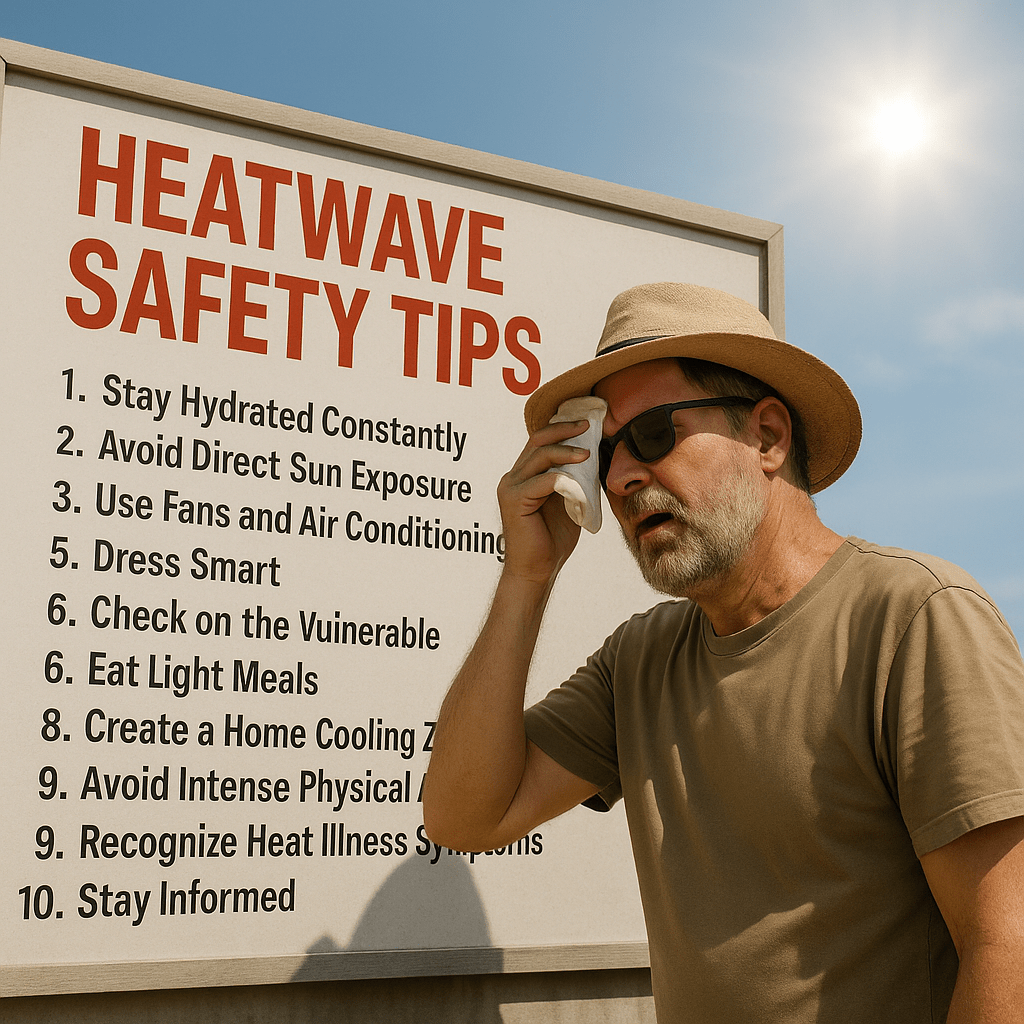As temperatures skyrocket across the United States, these essential heatwave safety tips could save lives.
A blistering heatwave has taken hold of the U.S., impacting over 100 million people from the Midwest to the East Coast. Cities such as Chicago, Philadelphia, and Atlanta are experiencing record-breaking highs, with temperatures surpassing 100°F (38°C) and humidity making it feel even hotter.
Public health officials are issuing emergency alerts as heat-related illnesses surge. The National Weather Service warns that this dangerous stretch of weather is expected to persist for several days, placing vulnerable populations—including seniors, young children, and outdoor workers—at significant risk.
Understanding the Threat

Heatwaves are not just uncomfortable—they can be deadly. According to the Centers for Disease Control and Prevention (CDC), extreme heat kills more people in the U.S. annually than hurricanes, floods, or tornadoes. With climate change intensifying the frequency and duration of these events, the importance of heatwave preparedness is now a public safety priority.
Top 10 Life-Saving Heatwave Safety Tips
Here are expert-approved heatwave safety tips to help you and your family stay protected during extreme temperatures:
1. Stay Hydrated Constantly
Drink water every 15–20 minutes, even if you’re not thirsty. Avoid alcohol and caffeine, as they contribute to dehydration.
2. Avoid Direct Sun Exposure
Limit outdoor activity between 11 AM and 4 PM. If you must go outside, wear a wide-brimmed hat and use SPF 30+ sunscreen.
3. Use Fans and Air Conditioning
Fans can cool the skin, but air conditioning is the most effective method to prevent heat-related illness. Visit public cooling centers if needed.
4. Dress Smart
Wear loose-fitting, light-colored, breathable clothing made of cotton or linen.
5. Check on the Vulnerable
Ensure elderly neighbors, children, and pets are safe. Never leave anyone inside a parked vehicle.
6. Eat Light Meals
Heavy meals generate more body heat. Opt for fresh fruits, salads, and hydrating foods like watermelon and cucumber.
7. Create a Home Cooling Zone
Use blackout curtains, shut windows during peak heat, and run fans strategically to circulate air.
8. Avoid Intense Physical Activity
Exercise in the early morning or late evening when temperatures are lower.
9. Recognize Heat Illness Symptoms
Watch for signs of heat exhaustion (dizziness, weakness, headache, nausea) and heat stroke (confusion, dry skin, rapid pulse). Seek immediate medical attention if symptoms occur.
10. Stay Informed
Regularly check your local weather alerts through trusted sources like NOAA, The Weather Channel, or your city’s emergency management services.
Climate Warning: This Is the New Normal
Scientists emphasize that intensifying heat waves are directly tied to global warming. According to a recent report from the EPA, the number of days above 95°F in the U.S. has nearly doubled since 1980. These are not isolated incidents, but part of a broader climate crisis reshaping our environment and threatening human health.


